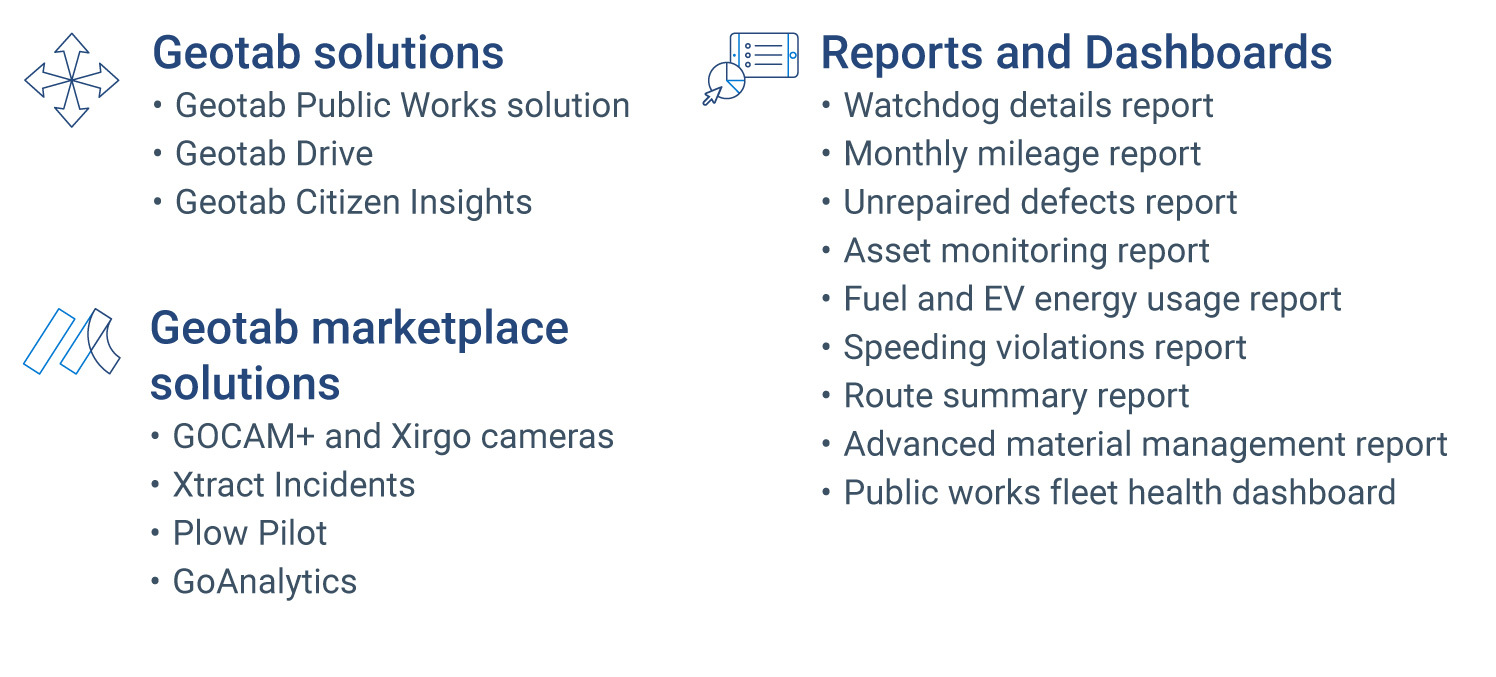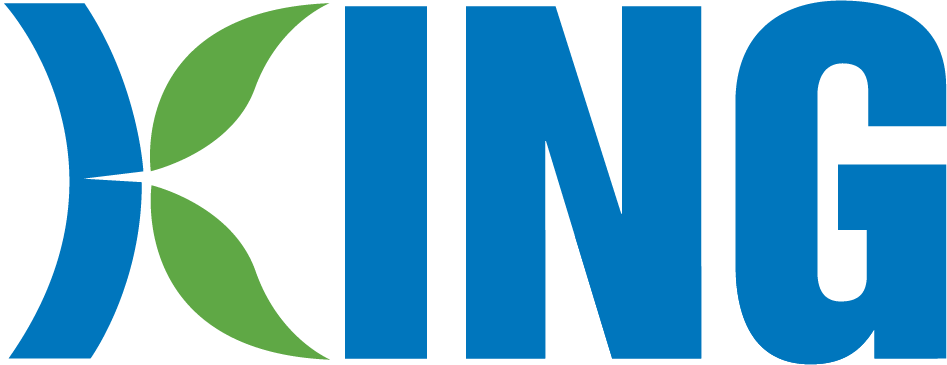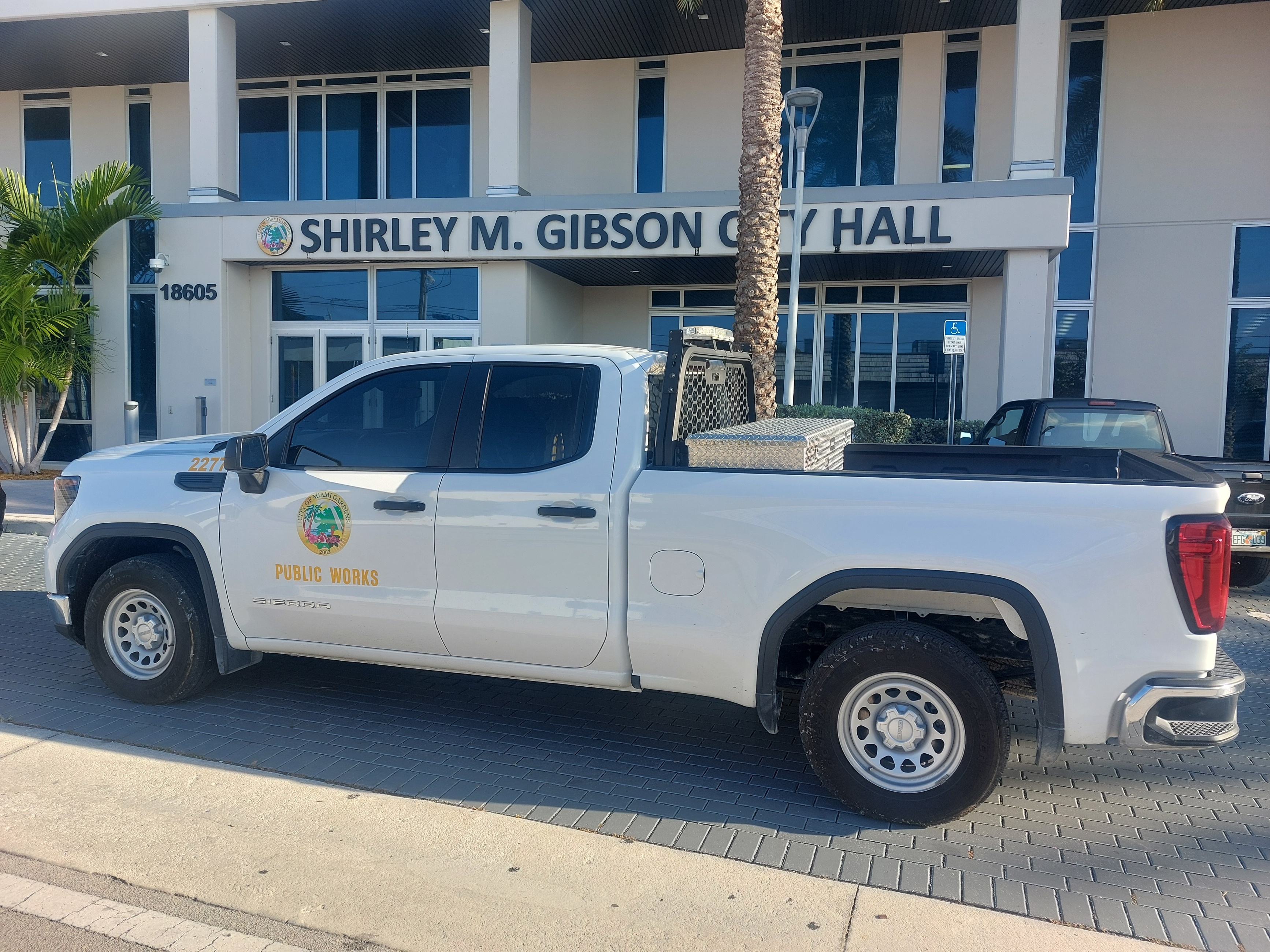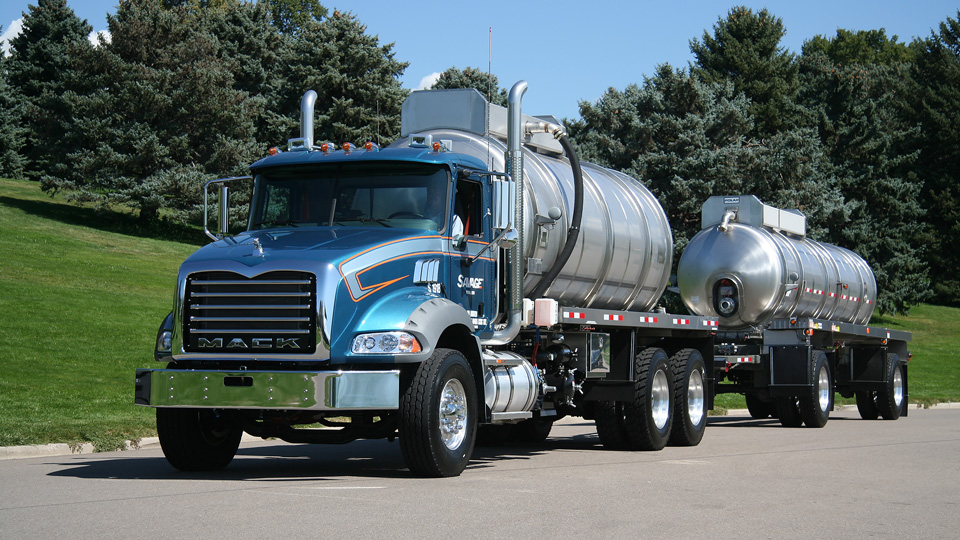
From manual to measurable: Inside King Township’s public works fleet transformation

Table of Contents
King Township is a rural municipality in Ontario, Canada, responsible for managing 660 lane kilometers of roads, 100 kilometers of sidewalks, and 333 square kilometers of service area—roughly half the size of Toronto. With a population projected to double by 2051, the township faces the challenge of delivering efficient public services with limited resources.
Barry Budhu, Manager of Transportation, Utilities, and Fleet Services, oversees over 130 vehicles and 200+ assets valued at over $25 million with an extremely lean team consisting of just himself, one lead mechanic, and one apprentice. When Barry took over fleet services, he saw the need to overhaul outdated, reactive operations and shift toward proactive, data-informed decision making.
The opportunity: Manage extensive infrastructure with limited resources
King Township's public works department faced several operational challenges common to lean municipal operations:
- Manual processes and limited visibility: The department relied on paper-based systems with minimal documentation, maintenance records, or work orders. Circle check compliance was essentially zero, and there was no way to verify whether maintenance standards were being met or if operators were following safety protocols. Without consistent vehicle health monitoring, unexpected breakdowns frequently disrupted operations and strained the already limited maintenance resources.
- Compliance and safety issues: Staff speeding, removing GPS devices, not wearing seatbelts, and skipping safety checks created significant liability risks and potential for costly claims. The lack of driver behavior monitoring meant these dangerous practices went undetected until incidents occurred.
- Inefficient resource allocation: Without performance metrics or service level benchmarks, the Township struggled with budget planning and had no visibility into actual resource usage during critical operations like winter maintenance. Routes were unbalanced, and the absence of route optimization tools and data led to operator contention and inefficient coverage patterns.
Barry explains, "We realized we were sitting on a goldmine of operational data through Geotab, but we needed the right approach to transform that data into actionable insights." The Township had been paying for Geotab telematics for years but wasn't effectively utilizing its capabilities.
The solution: Strategic partnership for comprehensive digital transformation
Recognizing he couldn't tackle this digital shift alone while managing multiple portfolios, Barry partnered with Optisolve, a Geotab reseller, to develop a practical roadmap for fully leveraging Geotab data to improve operations. The partnership focused on three key areas:
1. Winter Operations Optimization: The most impactful implementation was spreader control integration, combined with Geotab’s material management and route completion features, providing real-time visibility into salt and sand application during winter maintenance operations across 12 plow-equipped vehicles. This allowed Barry to track material usage daily and storm-by-storm across the entire Township. The system provided precise data on application rates, coverage patterns, and material consumption, enabling evidence-based resource allocation and service delivery decisions.
2. Fleet Compliance and Safety: Implementation of Geotab Drive for digital vehicle inspections streamlined circle checks, driver logs, and compliance tracking while integrating seamlessly with driver behavior monitoring tools. The system activated audible warnings for speeding, seatbelt non-compliance, and device tampering, creating immediate accountability. Real-time alerts enabled them to better address safety violations as they occurred, rather than discovering them after the fact.
3. Route Optimization and Analytics: Using the comprehensive operational and vehicle data collected through the Geotab Public Works solution Barry analyzed data on run times, distances, stop times, and idle times to reconfigure and balance 12 plow routes across 660 lane kilometers, creating more equitable workloads and reducing operator contention. Simultaneously, vehicle health monitoring enabled the transition from reactive to proactive maintenance scheduling, reducing unexpected breakdowns and extending asset lifecycles.
Barry emphasizes that Optisolve acted as "a bridge between two worlds"—the powerful Geotab platform and the specific needs of a lean municipality. He estimates the Township would have been "years behind" in implementation without this partnership.
“Optisolve acted as a critical bridge between the Geotab ecosystem and our on-the-ground needs,” he adds. “Their ability to provide tailored solutions, translate insights, and guide our implementation allowed us to move faster and get measurable results—without overburdening our internal team.”
- Barry Budhu, P.Eng., Manager of Transportation, Utilities, and Fleet Services, King Township
King Township’s Geotab Toolkit

The results: Measurable improvements in efficiency and service delivery
Putting Geotab data to work led to measurable improvements and meaningful operational changes that went beyond expectations:
Significant Cost Savings
Real-time visibility into material usage transformed King Township's approach to winter maintenance, delivering substantial financial benefits across multiple budget categories. The Township achieved measurable reductions in both material consumption and fuel costs while maintaining service quality:
- 30% reduction in material usage per storm (from ~100 tonne to ~70 tonne)
- 25% decrease in overall material costs despite harsh winter conditions
- Annual material usage dropped from 9,000 tonne to under 6,000 tonne
- Significant reduction in fuel costs through route optimization
Enhanced Safety and Compliance
Implementing real-time monitoring and audible warnings created a culture of accountability that dramatically improved fleet safety. These improvements not only enhanced worker safety but also reduced the Township's liability exposure across all fleet operations:
- Eliminated speeding incidents with reports now showing "all zeros"
- Zero seatbelt violations after implementing audible warnings
- Improved DVIR compliance from 0% to 30-40% with a goal of 100%
- No GPS device tampering following system activation
Improved Claims Management
Access to comprehensive telematics data bolstered King Township's ability to defend against liability claims and respond to incidents. This rapid response capability saves administrative costs and enables more effective communication with residents and stakeholders:
- Successfully defended 100% of 45 claims using telematics data
- Significant cost avoidance as claims typically start at policy limits ($1 million)
- Faster resolution times with data available in minutes rather than weeks
Increased Stakeholder Trust
The most significant qualitative benefit was the dramatic improvement in stakeholder trust and communication. There were zero complaints about material overuse compared to 50-60 complaints in previous years, and the township received approximately 10-11 kudos for winter service, described as "unheard of" in the Township. Looking ahead, the Township has approved the implementation of Geotab’s Citizen Insights solution, which will provide a public-facing map of operations to further enhance transparency and resident communication.
Barry highlights the shift in team morale: "We now have real trust and buy-in because we’re not relying solely on my opinion. No one can argue with the data."
From the Fleet Manager
“The difference now is that we're no longer guessing; we have real data. Municipalities need to understand that lean doesn't have to mean less when making an impact. With the right tools and partnership approach, even the smallest public works departments can achieve remarkable results while building trust with staff and the communities they serve.”
- Barry Budhu, P.Eng., Manager of Transportation, Utilities, and Fleet Services, King Township
Watch the Webinar Recording: Join Barry Budhu and Geotab's public works experts in "The Lean Public Works Department: Minimizing Waste and Maximizing Impact with Data." Learn how King Township and other municipalities are transforming their operations through strategic telematics implementation, featuring real-world insights and actionable strategies for maximizing efficiency with limited resources.
Post Tags
Client profile

Client name:
King Township
Industry:
Public Works
Types of vehicles:
Backhoe, grader, pick-up trucks, electric sedans, skidsteer, SUVs, sweeper, dump trucks with wing and plow combos, dump truck, tractor, utility vans
Fleet size:
130
Fleet focus:
Safety, Fleet Optimization, Productivity
Other stories

City of Miami Gardens: Cutting costs, saving lives with Smart Fleet Management
November 4, 2025

Holman and White Cap: data-driven fleet safety at scale
July 25, 2025

Savage transforms the operations of its 1,200 vehicles with a scalable telematics solution
May 26, 2025
